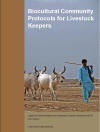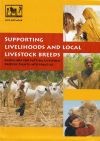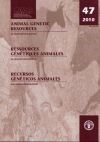Biocultural community protocols are a new approach with great potential for empowering pastoralists and other traditional livestock-keeping communities. They are both a process and a document in which communities invoke their rights as guardians of biological diversity under Article 8j of the United Nations Convention on Biological Diversity. Claiming rights for in-situ conservation, they also help promote Livestock Keepers’ Rights to maintain their breeds and continue their traditional management practices.
Biocultural community protocols put on record traditional knowledge and the biodiversity that communities steward, in a process that the communities themselves drive. In developing a biocultural community protocol, communities become informed about national and international laws that protect their rights. This book provides an overview of the process as well as its legal background and describes the first experiences with implementing this approach by livestock keepers in Asia and Africa.
 Title: Biocultural community protocols for livestock keepersAuthor: LPP and LIFE Network / Endogenous Development Magazine / 2010Description: A biocultural protocol is a document that records a community's role in ecosystem management, and states its rights to benefit from the ecosystemFormat: ZipPages: 42Download document
Title: Biocultural community protocols for livestock keepersAuthor: LPP and LIFE Network / Endogenous Development Magazine / 2010Description: A biocultural protocol is a document that records a community's role in ecosystem management, and states its rights to benefit from the ecosystemFormat: ZipPages: 42Download document



